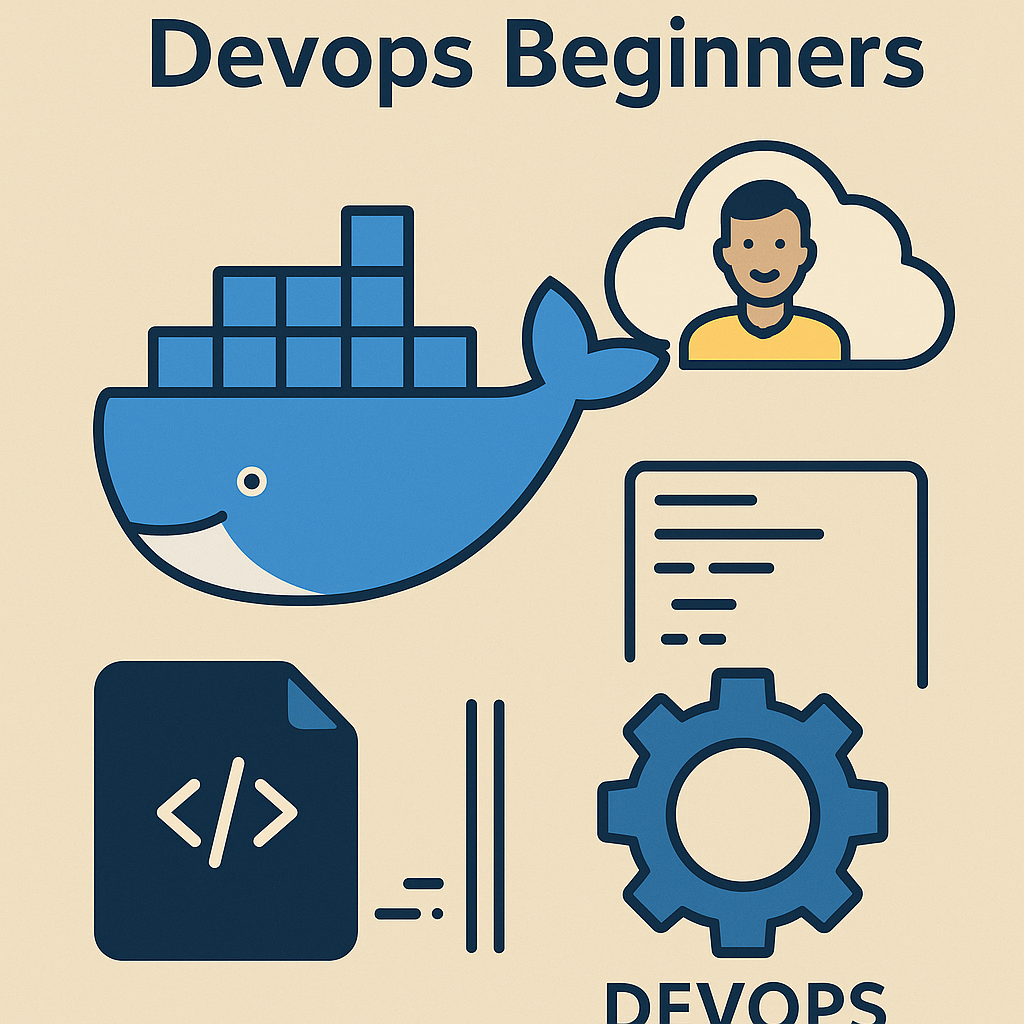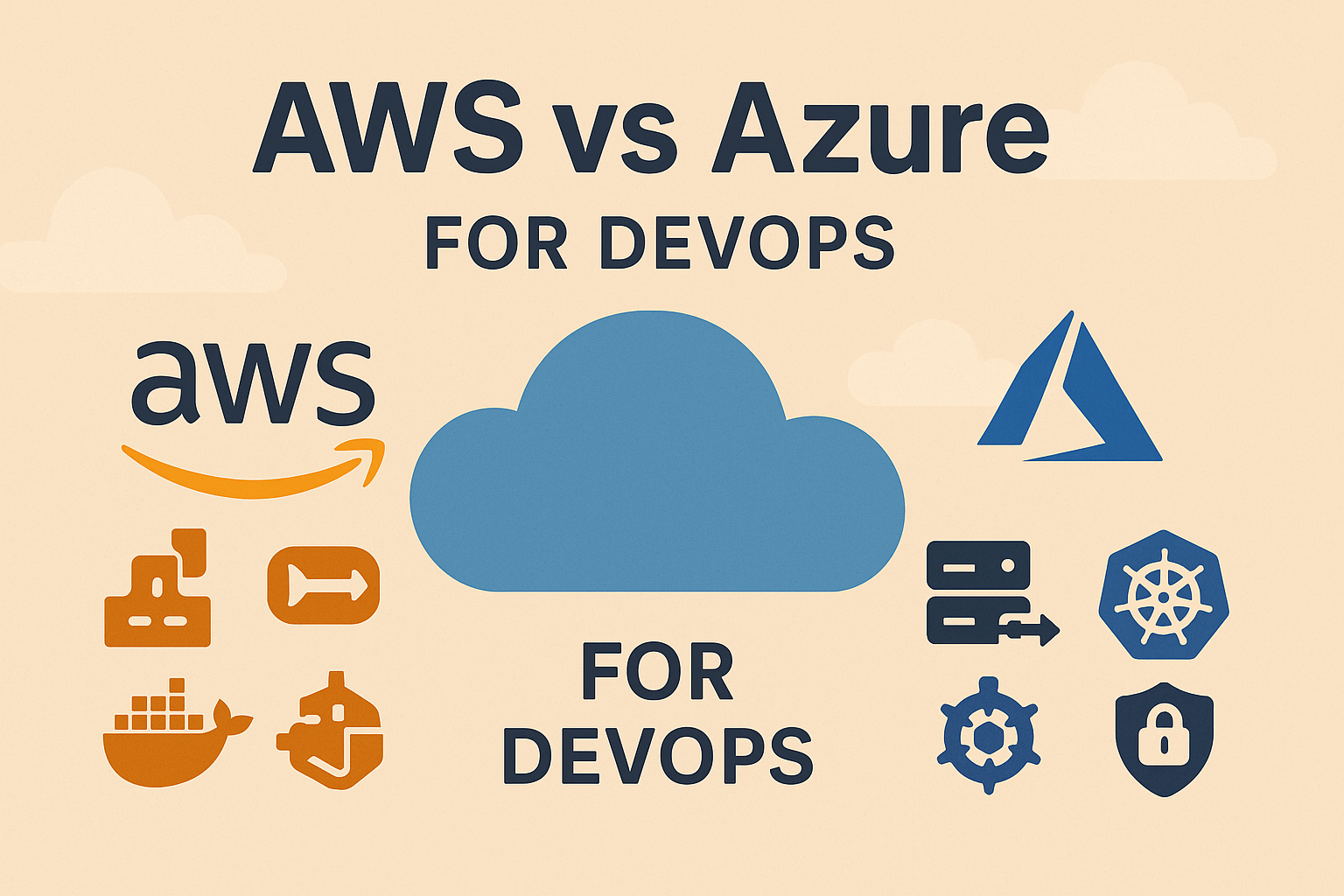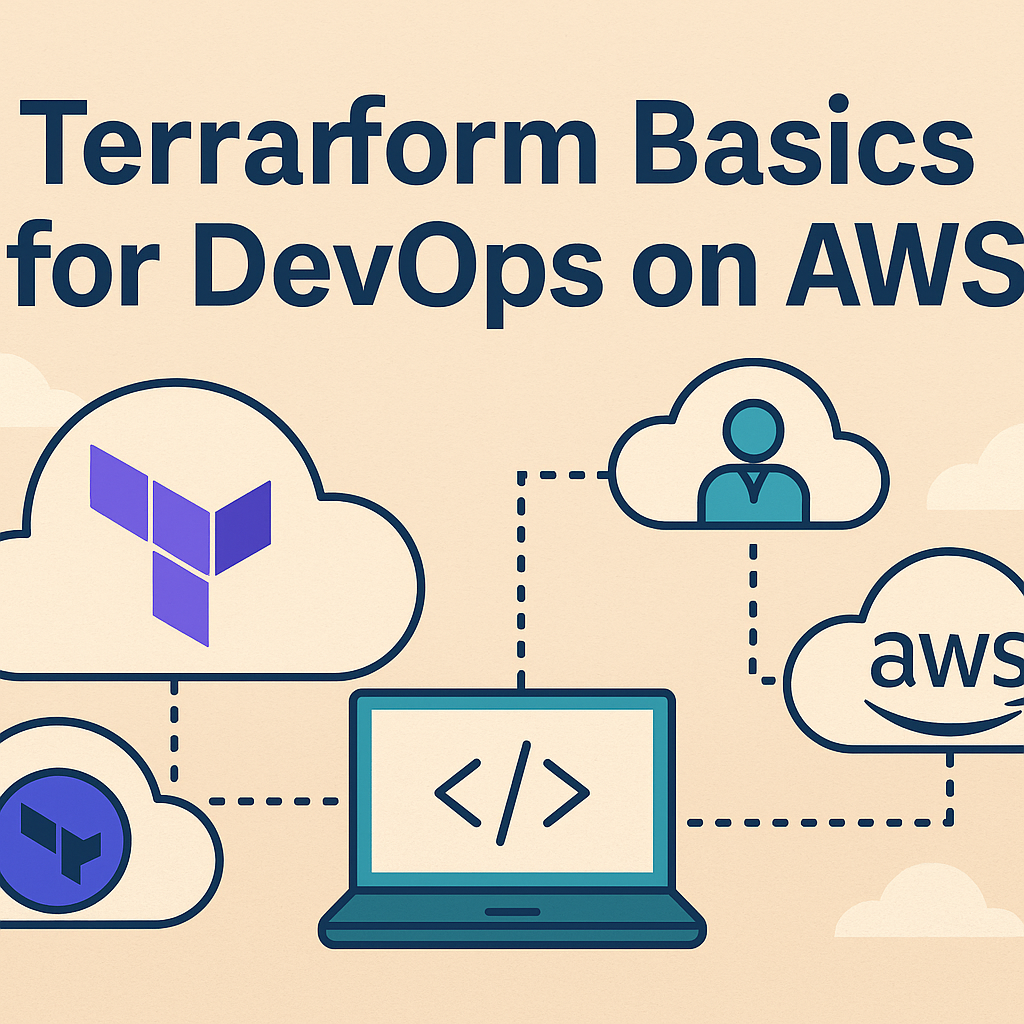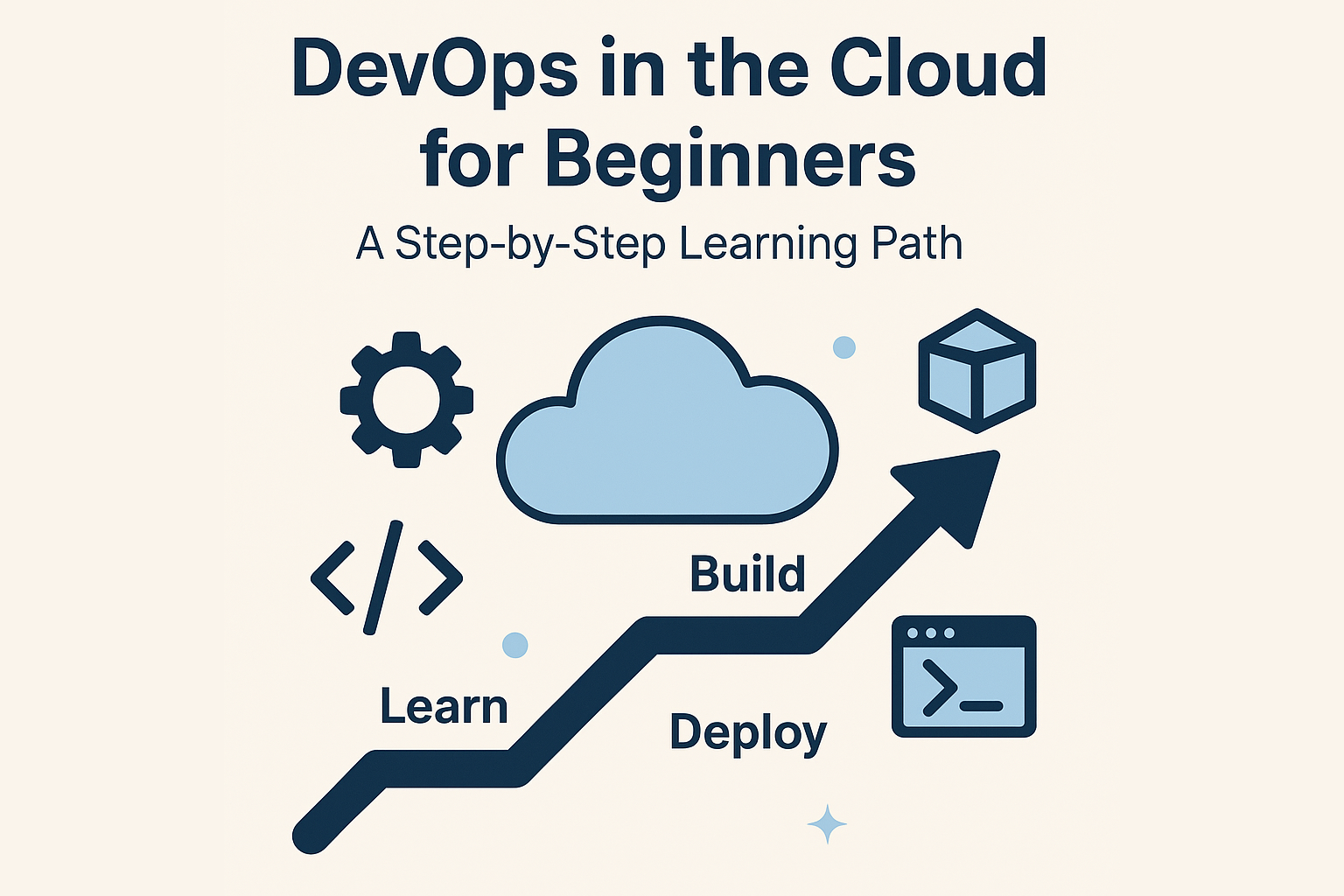Docker for DevOps Beginners: Build and Deploy Your First Container

Containers are a core part of modern DevOps workflows — and Docker is the most widely used containerization tool in the industry. Docker for DevOps Beginners is an essential topic to explore, especially if you’re just getting started with DevOps in the cloud. This guide will help you understand what Docker is, why it matters, and how to use it to package and deploy your first app.
What Is Docker and Why Is It Important for DevOps Beginners?
Docker is an open-source platform that allows you to package applications and their dependencies into standardized units called containers. These containers run reliably across environments — from your laptop to the cloud.
Why Docker Matters in DevOps
- Consistency: Eliminate “works on my machine” issues.
- Speed: Spin up and destroy environments quickly.
- Portability: Deploy anywhere (local, staging, cloud).
- Isolation: Run multiple apps without conflicts.
Core Docker Concepts for DevOps Workflows
- Image: A snapshot of an app, its dependencies, and configuration.
- Container: A running instance of an image.
- Dockerfile: A script to define how to build an image.
- Docker Hub: A registry of ready-to-use public images. Explore Docker Hub
Getting Started with Docker Containers
1. Install Docker
Install Docker Desktop from Docker’s official site and verify it works:
docker --version2. Create a Simple Web App (Node.js example)
app.js
// app.js
const http = require('http');
const port = 3000;
http.createServer((req, res) => {
res.end('Hello from Docker!');
}).listen(port);package.json
// package.json
{
"name": "docker-hello-world",
"version": "1.0.0",
"main": "app.js",
"scripts": { "start": "node app.js" }
}3. Create a Dockerfile
# Use Node.js base image
FROM node:18
WORKDIR /app
COPY . .
RUN npm install
CMD ["npm", "start"]4. Build and Run Your Container
from your terminal
docker build -t my-docker-app .
docker run -p 3000:3000 my-docker-appVisit http://localhost:3000 to see your success with Docker for DevOps beginners running in a container, celebrating your first steps.
Best Practices for Docker in DevOps
- Keep images small by using minimal base images (e.g.,
alpine) - Use
.dockerignoreto reduce build context - Tag images with version numbers
- Push to a registry like Docker Hub or AWS ECR
- Use Docker Compose for multi-container apps
Docker in a DevOps Workflow
Docker integrates with CI/CD pipelines, orchestration tools like Kubernetes, and infrastructure platforms like AWS and Azure, which is invaluable for Docker for DevOps beginners. It’s commonly used in:
- CI test environments
- Microservice deployments
- Cloud-native app hosting
Final Thoughts
Docker makes it easy to build, share, and run applications anywhere, a practice that Docker for DevOps beginners can rely on for greater versatility. As a DevOps beginner, mastering containers is a major step toward efficient, cloud-native development.
Keep learning! Go back to the DevOps in the Cloud for Beginners guide for your next step.





